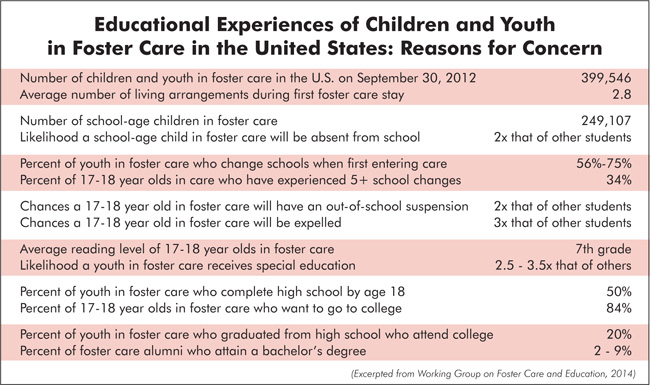To work in child welfare means working, at least some of the time, with schools.
At the “front end” of the child welfare continuum, schools are a key source of child maltreatment reports. In 2013, 17.5% of child protective services (CPS) reports in the U.S. came from education personnel (USDHHS, 2015). During investigative assessments, CPS social workers often interview children at school. Good working relationships with schools are essential at this stage.
When children are in DSS custody, the need for strong partnerships deepens. Child welfare agencies must work closely with schools to monitor children’s academic progress and promote their learning and development.
This isn’t always easy. When large, complex systems interact, friction and confusion can result. Involving additional key players, including birth families, resource parents, and others, can further complicate things.
Yet collaborating successfully is vital. As the table below suggests, many children involved with child welfare have a hard time in school. This is especially true of those in foster care. And research tells us very clearly that low academic achievement can have severe consequences throughout children’s lives.
Schools and child welfare agencies are natural partners. They can and should have cordial, fruitful relationships. If we understand, support, and hold each other accountable, we can help children achieve amazing results. That’s what this issue of Practice Notes is all about.

Contents of this Issue